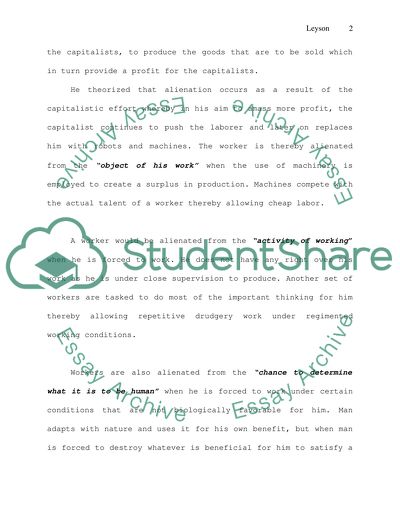Marx on Alienation Essay Example | Topics and Well Written Essays - 1000 words. Retrieved from https://studentshare.org/miscellaneous/1513064-marx-on-alienation
Marx on Alienation Essay Example | Topics and Well Written Essays - 1000 Words. https://studentshare.org/miscellaneous/1513064-marx-on-alienation.


